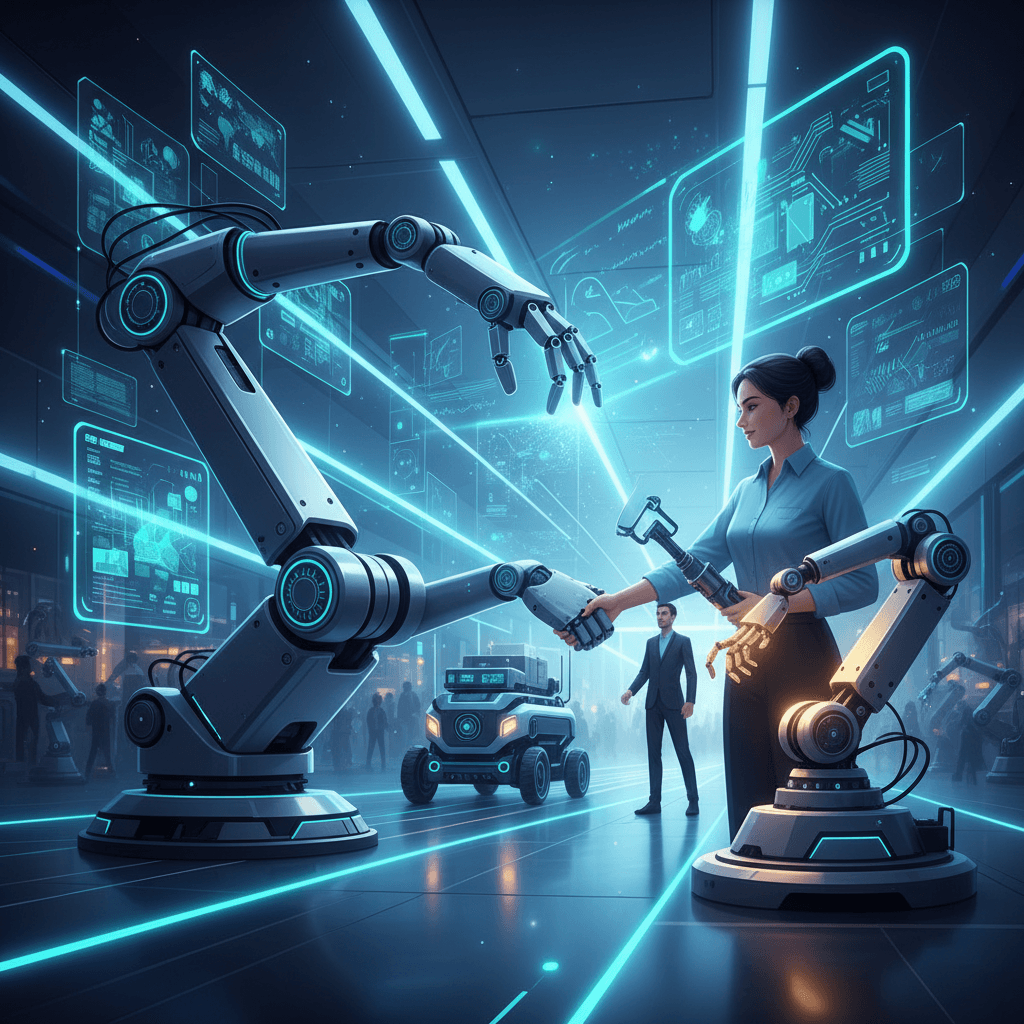TCS and CEA Drive Physical AI Revolution, Reshaping French Industry
Driving Physical AI, TCS and CEA will create adaptable robots and seamless human-machine collaboration, transforming industries and society.
September 10, 2025

Global IT services giant Tata Consultancy Services has entered into a significant partnership with the French Alternative Energies and Atomic Energy Commission (CEA), a leading public research institution, to advance the research and industrialization of Physical AI in France.[1][2][3] This collaboration aims to merge robotics, artificial intelligence, and intelligent systems to create machines capable of perceiving, interpreting, and interacting with the physical world, thereby accelerating the digital transformation of industrial processes.[4][5] The alliance will combine CEA's extensive expertise in scientific research and digital transformation with TCS's global scale and deep domain knowledge to develop and deploy cutting-edge, Physical AI-powered systems for real-world applications in sectors like manufacturing, logistics, and automation.[6][7] This strategic move is poised to enhance the resilience and competitiveness of French and European businesses by transforming the collaboration between humans and machines.[6][2]
A central pillar of the collaboration is the development of versatile and adaptable robots.[4] The joint effort will focus on creating intelligent robotic systems that can learn and execute a wide variety of complex tasks within dynamic and changing environments.[8][1][9] This initiative moves beyond traditional, single-task automation, aiming for a new generation of robots that are more flexible and adaptable to new use cases on factory floors and beyond.[10] The research will leverage CEA's deep expertise in mechatronics, machine vision, and AI to enhance robot performance in speed, precision, and energy efficiency.[9] By focusing on a system-level approach, TCS and CEA intend to build a scalable and secure smart robotics platform that can be tailored to diverse industrial needs, from smart manufacturing with multi-functional robots to streamlining supply chains through logistics automation.[8][11] The partnership plans to offer concrete solutions, proofs of concept (POCs), and comprehensive training programs to facilitate the adoption of these advanced robotic systems by organizations.[6][2]
Another critical focus area of the partnership is the advancement of human-robot collaboration. The goal is to create intuitive, safe, and efficient systems that allow humans and machines to work together seamlessly in shared industrial environments.[4][5] This involves developing new interfaces that facilitate natural and efficient interaction through multiple modes, including movement, touch, speech, and vision.[9] The collaboration will draw upon CEA's pioneering work in areas like haptic telepresence and dexterous robotic handling, which enables robots to feel and manipulate objects intelligently, extending human capabilities.[4][6] The emphasis is on bidirectional understanding, where the robot can interpret human actions and intentions, and the human operator can instantly comprehend the robot's behavior.[9] The development of such advanced collaborative systems is expected to significantly improve workplace safety and productivity, optimizing the entire production chain.[8][2] This human-centric approach aligns with TCS's broader strategy, which includes a Global AI Centre of Excellence in Paris focused on human-centric AI and brain-computer interfaces.[12][13]
Beyond the factory floor, the TCS-CEA alliance will also explore the creation of socially assistive robots.[4][5] This research stream is dedicated to designing robots capable of interacting with and assisting humans in various social contexts, offering personalized support and guidance.[6][1] This aspect of the collaboration leverages CEA's extensive and unique expertise in the convergence between physical AI and humans.[6] The research institution has a track record of groundbreaking projects, including the development of brain-controlled exoskeletons for tetraplegic patients, which underscores their leadership in creating technologies that directly assist and augment human life.[8][1] By focusing on this area, the partnership aims to apply the power of Physical AI to address societal needs in fields like healthcare and personalized assistance, demonstrating the technology's potential to extend beyond industrial applications.[11]
The collaboration is anchored at TCS's Pace Port™ in Paris, a research and innovation hub designed to connect startups, researchers, and enterprises to co-create and accelerate the development of next-generation solutions.[8][3][11] This facility, part of a global network, will serve as the launchpad for the joint TCS-CEA initiatives.[12][13] TCS has a long-standing presence in France, operating since 1992 and supporting numerous leading French enterprises, including 18 of the CAC40 companies.[4][14] This partnership not only reinforces TCS's commitment to the French and European AI economy but also aims to strengthen Indo-European industrial competitiveness.[6][8] By uniting CEA's role in coordinating the European roadmap for AI-powered robotics with TCS's industry transformation capabilities, the collaboration marks a significant step toward inventing the intelligent systems of tomorrow and boosting the future of industry.[6][1][2]
Sources
[3]
[6]
[8]
[9]
[10]
[11]
[12]
[13]
[14]